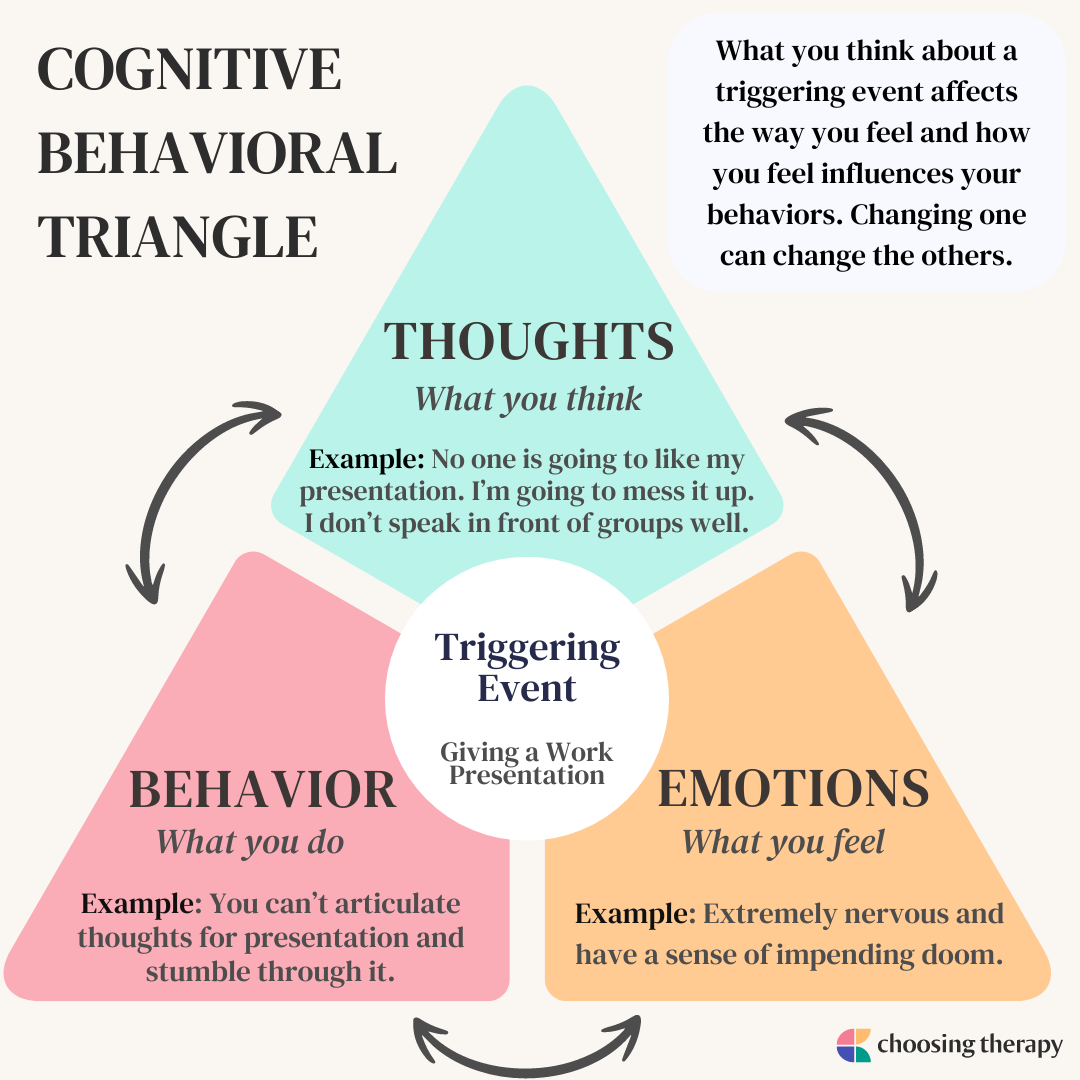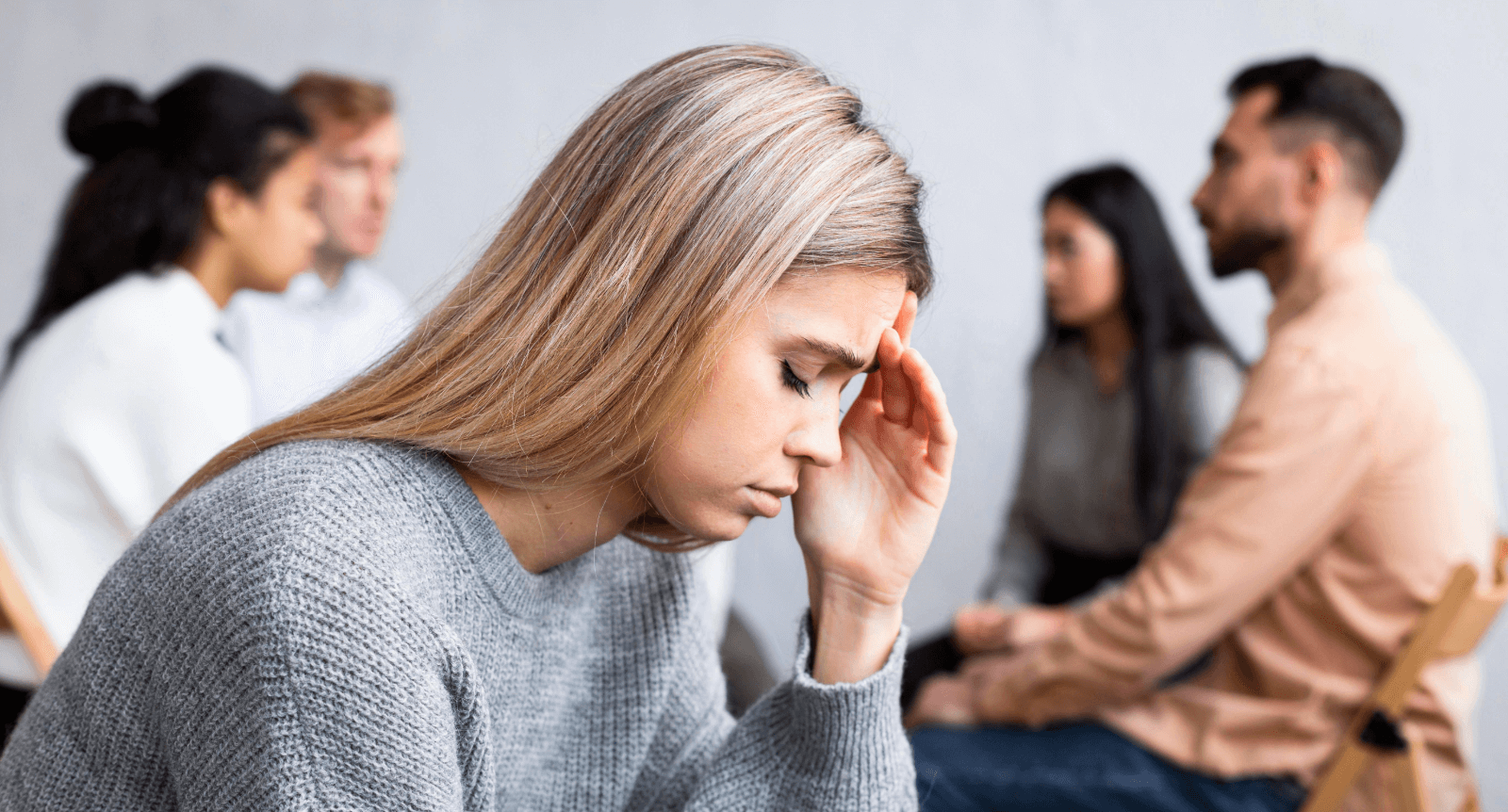Get started for expert-led counselling for anxiety services
Get started for expert-led counselling for anxiety services
Blog Article
Checking Out Various Techniques in Counselling for Anxiousness Problem for Enduring Adjustment
When dealing with stress and anxiety disorders, it's important to explore a selection of counseling approaches. Each method uses unique insights and devices to assist you handle your signs effectively. You might find that integrating methods can produce the very best results. However, recognizing the nuances of these methods is vital to cultivating long lasting change. What if the appropriate mix could launch a new level of psychological health for you?
Recognizing Anxiousness Problems: A Brief Introduction
Anxiety conditions, which affect numerous people worldwide, can greatly impact day-to-day live. You may experience frustrating sensations of worry or stress that seem unmanageable. These feelings can cause physical signs and symptoms like a racing heart, sweating, or even wooziness. Usual kinds of anxiety disorders include generalized stress and anxiety problem, panic attack, and social stress and anxiety problem. Each has unique indicators, however they all share a propensity to interrupt your regular and relationships.Understanding the root creates of your anxiousness is important. It could stem from genetics, mind chemistry, or life experiences. Identifying your triggers can assist you manage your actions better. It's important to bear in mind that you're not alone in this struggle. Several people encounter similar challenges, and seeking assistance is a strong step towards feeling better. By learning more about anxiety problems, you're currently on the path to understanding and managing your problem more efficiently.
Cognitive-Behavioral Therapy: Challenging Unfavorable Idea Patterns

Determining Negative Thought Triggers
Identifying the certain triggers behind your negative thoughts can be necessary in managing stress and anxiety when you run into minutes of distress. Beginning by taking notice of circumstances that provoke feelings of fear or concern. Is it a jampacked space, an upcoming due date, or a discussion with particular individuals? Write down these circumstances in a journal. This will certainly assist you recognize patterns in your thinking. Additionally, notice physical experiences that accompany your unfavorable ideas, like a racing heart or tightness in your upper body. By identifying these triggers, you get understanding right into what's fueling your anxiousness. Understanding these connections is the primary step in challenging those thoughts and ultimately gaining back control over your psychological responses.

Changing Thoughts With Positives
Testing negative idea patterns is a necessary action in transforming your mindset and decreasing anxiety. You might often find on your own caught in cycles of self-doubt or tragic reasoning. As opposed to letting these ideas dictate your sensations, practice replacing them with positive affirmations or sensible alternatives. When you assume, "I can't handle this," change it to, "I can take care of obstacles one action at a time." This simple modification can greatly impact your mood. Routinely recognizing and responding to these unfavorable ideas helps develop a healthier internal discussion. Bear in mind, it requires time and effort, yet consistently exercising this technique can bring about lasting modification, equipping you to deal with anxiousness with renewed self-confidence and resilience
Building Coping Techniques With Each Other
Changing adverse thoughts is just the beginning of taking care of stress and anxiety successfully. To develop enduring modification, you require to develop coping methods that encourage you. Cognitive-Behavioral Therapy (CBT) assists you determine and challenge those purposeless idea patterns. Together, you and your counselor can explore how these thoughts influence your feelings and behaviors.Start by establishing practical strategies, like journaling or mindfulness exercises, that allow you to face stress and anxiety head-on. When you face your fears slowly, you'll learn to respond differently.

Mindfulness and Acceptance-Based Approaches: Cultivating Present-Moment Awareness
As you browse the intricacies of anxiety, integrating mindfulness and acceptance-based techniques can significantly enhance your capability to grow present-moment recognition. By concentrating on the here and now, you'll locate that you can observe your thoughts and sensations without judgment. This technique assists you acknowledge your stress and anxiety without feeling bewildered by it.Engaging in mindfulness workouts, such as deep breathing, body scans, or led reflections, enables you to ground yourself in your existing experience. Acceptance-based approaches encourage you to welcome your feelings as opposed to fight against them. When you accept your feelings, they lose their power over you.Incorporating these methods right into your daily routine can change how you reply to stress and anxiety. You'll develop strength and learn to navigate stressful situations with higher ease. Inevitably, growing present-moment awareness lays the foundation for long lasting change, empowering you to lead a more satisfying life.
Direct Exposure Treatment: Facing Concerns Gradually
Exposure treatment aids you challenge your fears in a progressive means, making it much less overwhelming. You'll discover strategies to encounter anxiety-provoking circumstances step by action, while additionally building coping approaches to handle your reactions. This method equips you to take control and minimize stress and anxiety in time.
Progressive Direct Exposure Methods
When facing anxiety, progressively confronting your fears can be a powerful way to reclaim control. This strategy, called gradual direct exposure, involves gradually subjecting on your own to the scenarios or things that trigger your stress and anxiety. Start with less daunting situations and slowly function your way up to even more difficult ones. As an example, if you hesitate of public speaking, you could start by talking before a mirror, then progress to sharing ideas with a close friend, and ultimately deal with a little team. Each step assists desensitize you to the anxiety, constructing your self-confidence over time. Remember, it's important to rate on your own and commemorate small triumphes as you move via this procedure, strengthening your capacity to take care of stress and anxiety successfully.
Building Coping Strategies
Building efficient coping methods is vital for managing anxiety, especially as you challenge your worries slowly. One powerful technique is exposure treatment, where you begin by facing your concerns in a regulated fashion. Start with less daunting situations and gradually work your way up to even more tough scenarios. This steady direct exposure assists desensitize you to anxiety causes, making them less overwhelming.Incorporate relaxation techniques, such as deep breathing or mindfulness, to soothe your mind throughout direct exposure. Track your progression, commemorating small success along the road to boost your self-confidence. Bear in mind, it's fine to take your time; the objective isn't perfection however constant enhancement. By building these techniques, you'll encourage yourself to browse stress and anxiety and embrace life a lot more totally.
Psychodynamic Therapy: Revealing Source of Stress And Anxiety
Psychodynamic therapy website here checks out the unconscious mind, exposing the source of your anxiousness - Counseling services for anxiety. By examining your thoughts, feelings, and past experiences, this technique aids you discover underlying disputes and unsolved problems that may add to your present anxiety. You'll work with a specialist to investigate youth experiences, connections, and emotional patterns that shape your reactions today.As you obtain insight into these deeper layers of your subconscious, you'll start to recognize exactly how past occasions influence your existing habits. This understanding can bring about catharsis, permitting you to process emotions you might have suppressed.Through the healing partnership, you can likewise determine defense reaction that may have developed over time, using a clearer path to transform. Ultimately, psychodynamic therapy outfits you with the devices to address your anxiety at its core, advertising lasting improvement in your emotional well-being
Holistic and integrative Methods: Combining Techniques for Greater Effectiveness
Incorporating different restorative techniques can enhance your trip toward taking care of anxiousness better. By integrating elements from cognitive-behavioral therapy, mindfulness techniques, and holistic methods, you can develop an individualized method that resolves your distinct needs. For circumstances, you may utilize cognitive-behavioral strategies to challenge negative thought patterns while including mindfulness exercises to ground on your own in today moment.Additionally, exploring holistic methods such as yoga or reflection can advertise leisure and minimize anxiousness symptoms. This mix allows you to create greater self-awareness and resilience.Experimenting with these diverse techniques can aid you uncover what reverberates most with you. Bear in mind, it has to do with finding a synergy that works, rather than staying with a solitary method. This integrative strategy not just uses instant alleviation yet additionally fosters lasting abilities for taking care of anxiety, equipping you to reclaim control over your life.
The Role of Assistance Solutions: Building Durability Through Connection
While it could appear that taking care of anxiety is a singular trip, having a strong support group can play a crucial role in your resilience. Bordering on your own with compassionate good friends, household, or support system creates a risk-free room where you can honestly share your feelings and experiences. You advise yourself that you're not alone in this struggle.These partnerships provide encouragement and can offer useful coping strategies that have functioned for others when you link with others. It's also a possibility to get point of view; pals can assist you see situations in a different way, lowering sensations of isolation.Moreover, psychological support promotes a feeling of belonging, which can considerably relieve anxiousness signs. By leaning on Visit This Link your assistance system, you can build durability and deal with difficulties better. Keep in mind, reaching out for aid suggests toughness, and it can make all the distinction in your journey towards taking care of anxiousness.
Often Asked Concerns
What Are the Typical Signs And Symptoms of Stress And Anxiety Problems?
You might experience uneasyness, fatigue, trouble focusing, irritability, muscle mass tension, and rest disturbances. Physical symptoms can include rapid heartbeat, sweating, and shivering. Acknowledging these signs early can help you seek proper support and treatment.

The Length Of Time Does Therapy Commonly Last for Anxiousness Problems?
Therapy for anxiety disorders commonly lasts anywhere from a couple of weeks to several months. It really depends on your individual requirements, progression, and the techniques your specialist utilizes to assist you handle your anxiousness properly.
Can Drug Be Made Use Of Alongside Therapy for Stress and anxiety?
Yes, medication can definitely be used along with therapy for anxiousness. Incorporating both strategies frequently enhances treatment efficiency, helping you handle signs and symptoms while exploring underlying problems through therapy. Always consult your doctor for personalized advice.
Are There Self-Help Methods for Taking Care Of Stress And Anxiety?
Yes, there are numerous self-help methods for managing stress and anxiety. You can exercise mindfulness, participate in normal workout, keep a balanced diet plan, develop a routine, and use deep breathing strategies to aid minimize stress and anxiety signs successfully.
How Do I Know if I Need Expert Aid for Anxiousness?
You ought to take into consideration seeking specialist help for anxiety if it disrupts everyday life, causes substantial distress, or if self-help methods aren't working. Trust fund your impulses; reaching out can cause better coping skills and support. Typical types of anxiety problems consist of generalised stress and anxiety disorder, panic condition, and social anxiousness condition. When you experience minutes of distress, recognizing the details triggers behind your adverse ideas can be necessary in handling anxiousness. Changing adverse ideas is just the start of taking care of stress and anxiety efficiently. By examining your thoughts, sensations, and previous experiences, this approach assists you uncover underlying disputes and unsolved concerns that may add to your current anxiousness. It's also a chance to gain viewpoint; good friends can help you see scenarios differently, minimizing feelings of isolation (Counseling services for anxiety).Moreover, psychological support promotes a sense of belonging, visit the website which can substantially reduce stress and anxiety signs
Report this page